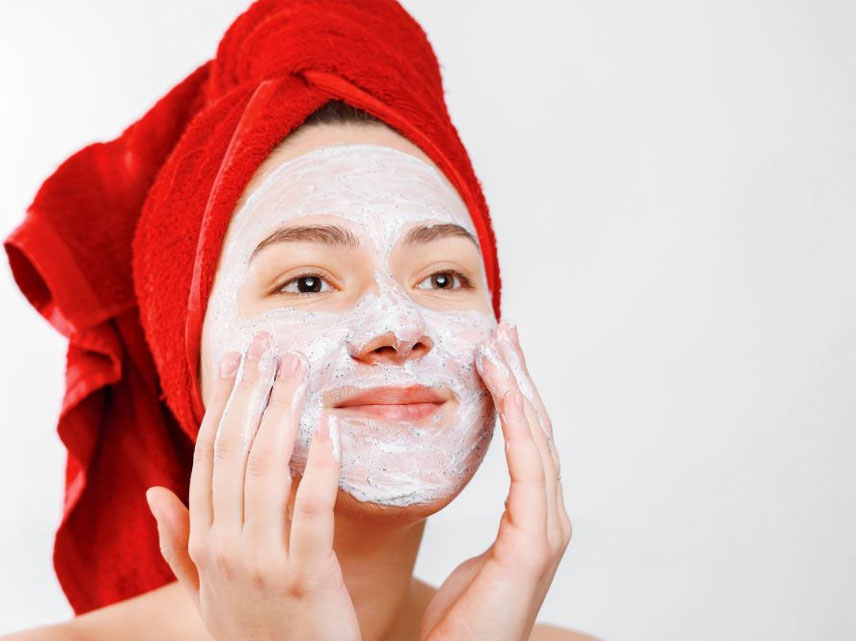Morning vs. Night Skincare: What You Should Know
When it comes to skincare, timing matters just as much as the products you use. Morning and night skincare routines serve different purposes, and understanding their unique roles can help you create a more effective and balanced approach to maintaining healthy skin. In this guide, we’ll break down the differences between morning and night skincare, what products to use, and how to tailor your routine based on your skin’s needs.

Recent Blogs
- Best Travel Gadgets to Make Your 2025 Trips Smoother
- How to Do a Bold Lip Without Looking Overdone
- Hidden Gems in Europe You’ve Probably Never Heard Of
- Top 7 Must-Have Travel Gadgets for Tech-Savvy Explorers in 2025
- Clean Beauty: Non-Toxic Brands to Try in 2025
- Modern Interior Design Ideas to Transform Your Space
- Dermatologist-Approved Products for Acne-Prone Skin
August 25 23
When it comes to skincare, timing matters just as much as the products you use. Morning and night skincare routines serve different purposes, and understanding their unique roles can help you create a more effective and balanced approach to maintaining healthy skin. In this guide, we’ll break down the differences between morning and night skincare, what products to use, and how to tailor your routine based on your skin’s needs.
Why Morning and Night Skincare Routines Differ
Your skin’s needs change throughout the day. During the day, your skin is exposed to environmental stressors such as pollution, UV rays, and dirt. At night, your skin enters recovery mode, repairing damage and regenerating cells. Because of this natural rhythm, morning skincare is focused on protection, while nighttime skincare is centered around repair and nourishment.
Understanding this difference is key to choosing the right products and maximizing the benefits of your skincare regimen.
Morning Skincare: Focus on Protection and Preparation
Your morning routine should be all about prepping your skin to face the day. This includes hydration, nourishment, and especially protection from environmental aggressors.
Step-by-Step Morning Skincare Routine
Cleanser
Start with a gentle cleanser to remove any oil or sweat that accumulated overnight. Even though your face wasn’t exposed to external pollutants while you slept, natural oils and dead skin cells can build up and clog pores.
Toner
A good toner helps restore your skin’s pH balance and preps it for better absorption of the next products. Look for hydrating formulas with soothing ingredients like rose water or chamomile.
Antioxidant Serum
Vitamin C is a popular morning serum because of its antioxidant properties. It helps fight free radicals and brightens the skin. Other antioxidant-rich serums can also support collagen production and protect against premature aging.
Moisturizer
Choose a lightweight moisturizer to hydrate and protect the skin barrier. Even if you have oily skin, this step is essential for keeping your skin balanced throughout the day.
Sunscreen
This is non-negotiable. Sunscreen protects your skin from UV rays, which can cause sunburn, premature aging, and even skin cancer. Opt for a broad-spectrum SPF of at least 30, and reapply throughout the day if you’re exposed to sunlight.
Why These Steps Matter
Each product in your morning routine works to shield your skin from the day's environmental challenges. Skipping sunscreen or antioxidants could mean faster aging, dullness, and increased skin sensitivity over time.
Night Skincare: Focus on Repair and Renewal
At night, your skin naturally goes into recovery mode. Blood flow increases, and your body produces more collagen and repairs damage. This is the perfect time to deliver powerful active ingredients that support skin renewal.
Step-by-Step Night Skincare Routine
Makeup Remover and Cleanser
Start with a double cleanse if you wear makeup or sunscreen. Use an oil-based cleanser first to break down impurities, followed by a gentle water-based cleanser to remove any remaining residue.
Exfoliant (2-3 times a week)
Exfoliation helps remove dead skin cells and unclog pores. Use chemical exfoliants like AHAs or BHAs for more even results and less irritation than physical scrubs.
Toner or Essence
A hydrating toner or essence can help calm the skin after cleansing and boost the absorption of serums and moisturizers.
Treatment Serums
Nighttime is the ideal window for targeted treatments. Retinol, peptides, and other anti-aging ingredients work best while you sleep, reducing fine lines, smoothing texture, and encouraging cell turnover.
Moisturizer or Night Cream
Night creams are typically thicker and more hydrating than day creams. They create a barrier that locks in active ingredients and moisture for overnight recovery.
Eye Cream or Spot Treatments
Use these last to target specific concerns like dark circles, puffiness, or acne.
Why Nighttime Skincare Is Essential
Repair-focused ingredients such as retinol and exfoliants can make your skin more sensitive to sunlight. That’s why they’re best used at night when there’s no risk of sun exposure. Incorporating nourishing ingredients like ceramides, hyaluronic acid, and niacinamide also helps restore hydration and reinforce the skin barrier.
Key Differences Between Morning and Night Skincare
|
Routine Aspect |
Morning Skincare |
Night Skincare |
|
Purpose |
Protection against environmental stressors |
Repair and regeneration |
|
Key Products |
Antioxidants, sunscreen, lightweight moisturizers |
Retinoids, exfoliants, rich moisturizers |
|
Product Strength |
Typically lighter formulas |
More concentrated, active ingredients |
|
Sun Sensitivity |
Focus on prevention |
Uses ingredients that require sun avoidance |
Understanding these differences helps you avoid using the wrong product at the wrong time, which can lead to irritation, dryness, or reduced effectiveness.
Tips for Building a Balanced Skincare Routine
Know Your Skin Type
Whether your skin is oily, dry, combination, or sensitive will influence the products you choose for both morning and night. For example, oily skin may need lighter hydration, while dry skin benefits from richer creams.
Introduce Active Ingredients Slowly
Especially with ingredients like retinol or acids, start with a lower concentration and use them 2-3 times a week. Gradually increase frequency as your skin builds tolerance.
Don’t Overdo It
More products don’t always mean better results. Stick to a few high-quality, targeted products rather than overloading your skin with layers it can’t absorb.
Be Consistent
Skincare results take time. Regular, consistent use of your routine is far more important than trying the latest trending product every week.
Adjust Seasonally
Your skin’s needs change with the weather. In winter, you may need more hydration; in summer, lighter textures and stronger SPF become more important.
Final Thoughts
Morning and night skincare routines each play a crucial role in your skin's overall health and appearance. A protective morning routine sets the foundation for skin defense, while a restorative nighttime routine ensures healing and renewal. By understanding the differences and tailoring your approach to meet your specific needs, you can achieve clearer, brighter, and healthier skin.
Whether you're a skincare beginner or a seasoned enthusiast, mastering the balance between morning and night care will elevate your routine and lead to long-term skin success.
Comment:
Your email address will not be published. Required fields are marked *
Our Top Picks
No products found.








